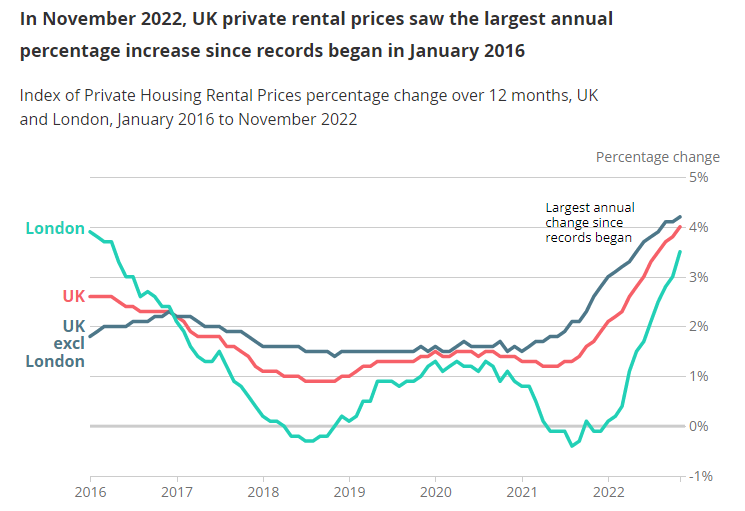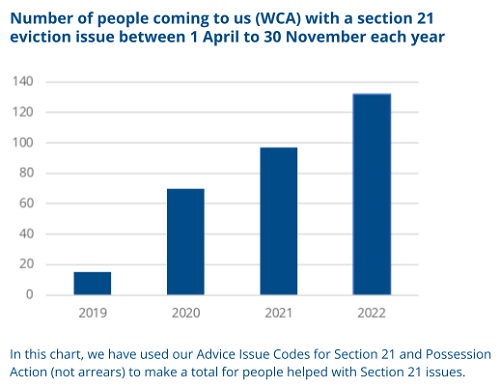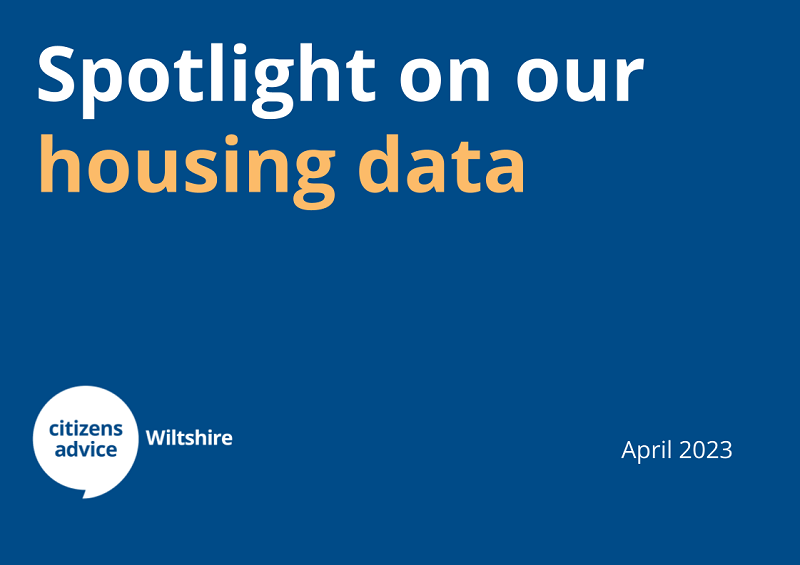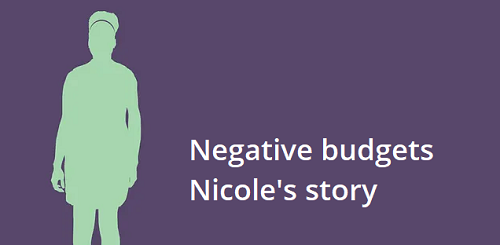The number of housing issues we're helping people with has more than doubled during this period, with housing now our second largest advice enquiry.
As you’ll read much of the report concentrates on the experience of people in the private rented sector. This is because we help more private renters with housing issues than social renters or owner occupiers.
Private renters have the least security of tenure, are the least protected but face some of the highest housing costs.
Access to decent, affordable homes matters
Every day we help people who’ve come to us for advice and support because they are struggling to find, or sustain somewhere safe and secure to live.
As our report shows, in particular, it’s a really difficult time to be a private renter. Rents are going up, the quality of properties is going down and more and more people are being evicted without cause. Our recent data highlights the experiences of private tenants struggling to get through the cost-of-living crisis, in increasing numbers.
(Un)affordability
Cost of living pressures are hitting renters hard
We’ve found that private renters are the group most likely to be in a “negative budget” at the end of every month - meaning they don’t have enough money coming in each month to cover their essential costs. For those with a negative budget, debt can quickly build up over a short space of time putting tenants at risk of eviction and debt enforcement practices, which we know can be traumatic — particularly for people with young children.
Click on the image below to read Nicole's story, showing how negative budgets occur and the impact they have
Rents are continuing to rise
Private renters are facing further increases to their housing costs this year, with rental price growth at its highest rate in the UK since records began in 2016. Private renters already spend more of their income on housing costs than other groups. Some are still struggling with arrears built up during the pandemic, and don’t have savings to fall back.

Support to help those on low incomes cover their rent isn’t keeping pace with housing costs, or inflation
The Local Housing Allowance (LHA), which helps people on low incomes meet the cost of renting in the private sector it’s becoming less effective because the level of support is out of step with the housing market.
In April 2020, in response to the pandemic, the government restored LHA to cover the bottom 30% of rents. However, it was immediately refrozen and in the 2 years following government statistics show the bottom 30% of rents rose by around 5%, creating a shortfall of £27 a month, on average, between the bottom 30% of rents and LHA rates. With the announcement in the 2022 autumn statement that it’s to be frozen for the third year running, thousands more households face the prospect of being unable to afford their rent. Struggling renters are at risk of eviction.
(Poor) quality
High rents don’t mean high quality homes
Renters may be paying more than ever for their homes, but the quality of those properties hasn’t improved. We’re helping a record number of people with disrepair issues in the private rented sector. In particular, we’ve seen a significant increase in the number of people accessing our website for advice on damp in their homes.
At a time when renters are struggling to keep their heads above water, with record rises in energy bills and rent, the average tenant is facing annual energy bills that are £350 more expensive due to poor insulation. People living in the least efficient homes are paying an extra £950 a year. Cold homes are causing widespread issues with damp and mould, and putting the health of renters at risk.
Those who have complained about their housing conditions often tell us they've waited more than a year for their landlord to fix the issue. Others say they didn’t complain to their landlord because they were scared of being evicted. Fear of retaliatory evictions is not uncommon among private renters and often cited as a reason for not enforcing their rights.
(In)security
More people are facing evictions through no fault of their own
Not only are renters faced with high costs and low quality properties, they also have to contend with the fact that their landlord can evict them for no reason at all.
The government has announced plans to ban section 21 “no fault” evictions, where landlords can evict tenants through no fault of their own. However, until the Renters (Reform) Bill is legislated, tenants are still at risk of being evicted.
Our data shows a significant increase in the number of people coming to us for help with a section 21 eviction notice. This trend began at the start of the pandemic and has continued to build during the cost-of-living crisis. For some renters this can put them at a higher risk of homelessness.

Homelessness
More private renters are seeking advice on homelessness
From April 2020 our data shows a significant shift from social tenants seeking advice on homelessness to more private tenants. The pandemic and the cost-of-living crisis have exposed the extent to which private renters are at the mercy of a fluctuating market and the whims of individual landlords.
In response to the pandemic, the government recognised the need for additional protections for tenants in the private rented sector by temporarily banning evictions. But this support hasn’t been offered during the cost-of-living crisis. Our data shows that problems for tenants have only grown as they’re forced to pay more for damp and mouldy homes while still at risk from section 21 evictions.
Good quality, warm and affordable housing is crucial
Renters need to feel safe and secure, in a place they can call home for as long as they need. But private renters face the burden of ever increasing rents, and have little control in the market. To help private renters, the Government must bring forward existing reform plans as soon as possible and consider other interventions as renters’ costs rise.
We are calling on the government to:
-
Unfreeze the Local Housing Allowance and restore the link to local rents, returning it to the 30th percentile to help those struggling most with increased rental costs.
-
Strengthen Minimum Energy Efficiency Standards in legislation, so all new private rented properties reach EPC C by 2025, and existing tenancies by 2028.
-
Extend Awaab’s law to the private rented sector to place strict timelines on landlords to deal with serious issues such as damp and mould.
-
Bring forward the Renters (Reform) Bill to, amongst other things, abolish section 21 evictions, give tenants stronger powers to challenge poor practice and extend the Decent Homes Standard to the private rented sector.
-
Ensure that Local Authorities have well resourced teams to enforce quality standards set out in the Renters’ Reform Bill and that these teams are accessible to tenants.


